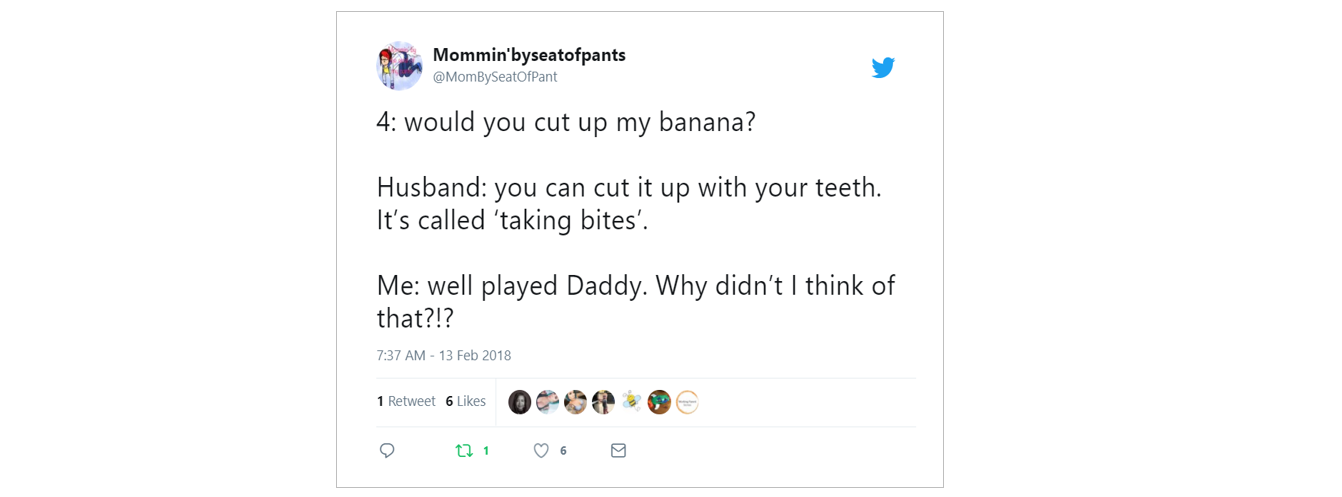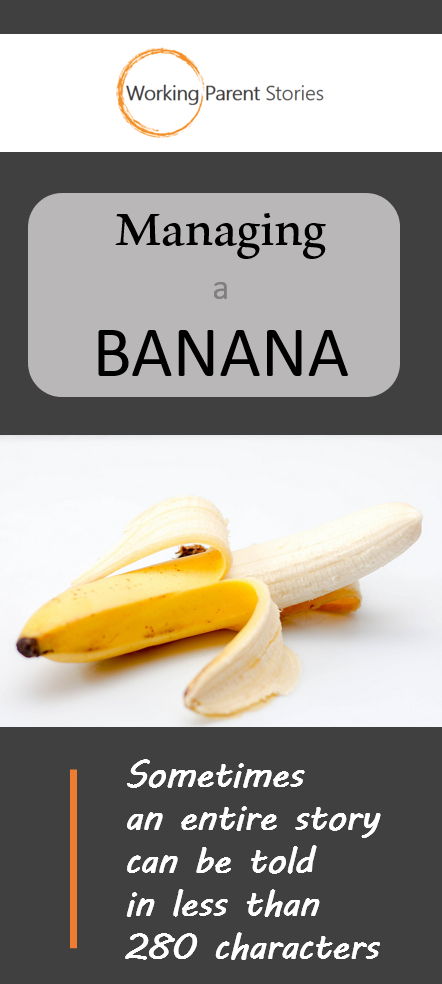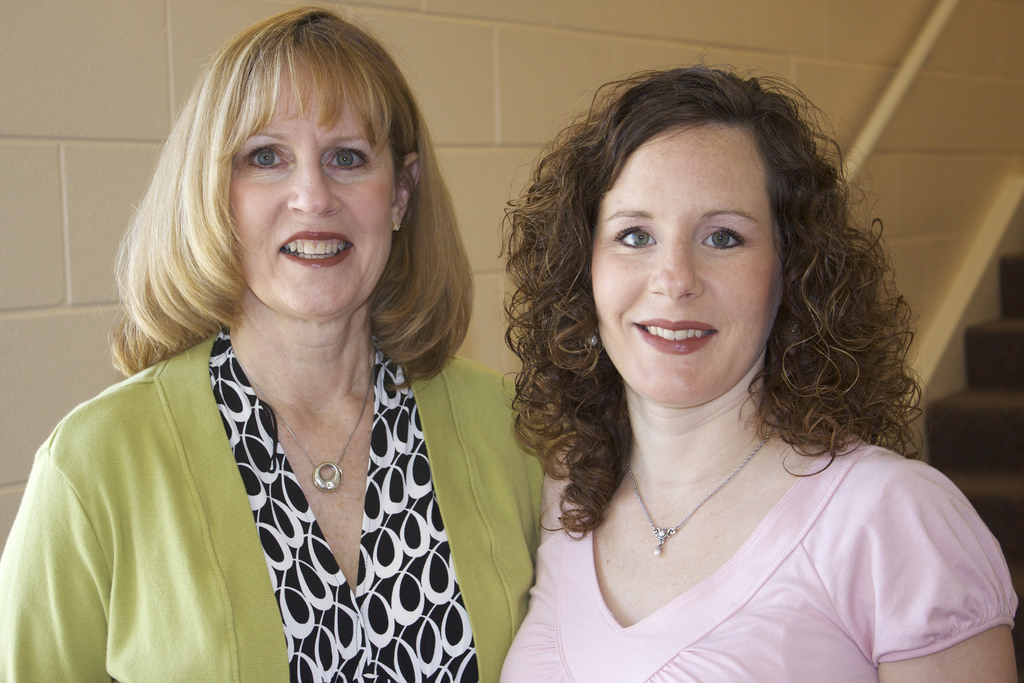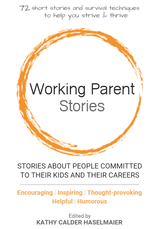|
From Twitter
0 Comments
Commentary on a recent article in The Economist Most parents want their children to be paid fairly when they enter the workforce. They believe that compensation should correlate to value delivered, and that an employee's gender should not impact their pay. Many are passonate about the topic of "equal pay for equal work", and we recently wrote about some of them in the story "When Parents Act Like Corporations". The first step toward achieving equal pay is working (i.e. obtaining some pay ;). Then, if you want to compare your compensation to another employee's, you need to produce at least the same results or value as that person. Some fascinating data about the gender pay gap was recently published in the the story "Choices and Consequences". Some studies show that pay rates for men and women align until the birth of their first child. After that, women who have a child find that, on average, their pay dips. Many factors explain the dip, and some people are bothered by it. Researchers from Princeton, the London School of Economics, and the Danish Ministry of Taxation recently found that in Denmark, one of the greatest predictors for how a woman's pay will be impacted by having a child is the example set by her mother. Specifically, the example her mother sets in terms of how she manages her career. Apparently men's pay, on average, dips very little, if any, after their first child is born. You can read about this research in a short article in The Economist: The roots of the gender pay gap lie in childhood. So, if you're serious about wanting your daughter to be compensated at the same rate as the men she will work with, look no further than the example set within your own family. . . . Related note: A guy I know recently commented that we often give mothers most of the credit, as well as the blame, related to their children's opportunities and behaviors. We agree. At the same time, many couples believe that childrearing is a team effort, and neither parent's contribution is more important than the other's. Congratulations to all of the parents working so hard to support their children, each other, and their communities. It isn't easy, and that's why we admire you!
Inspired by a Freakonomics podcast: What Can Uber Teach Us About the Gender Pay Gap? The gender pay gap gets a lot of attention. Many theories try to explain why it exists. While many spend time speculating and theorizing about it, the folks at Uber have gathered data that provides new insights. People who value fair pay, including working parents, are likely to find this info pretty interesting. (And those who want to dig deeper into the data can listen to the Freakonomics podcast: What Can Uber Teach Us About the Gender Pay Gap?) Some believe that the gender pay gap could be reduced if workers had more flexible work hours. Uber offers its drivers total flexibility when it comes to hours worked. Some assert that those who control pay have unconscious (or conscious) biases that result in men being paid more than women for the same work. Uber pays drivers using a gender-blind formula based on the length of a ride in miles and minutes. Additionally, the fare (which determines pay) may include "multipliers" based on customer demand at any given time. Uber's pay structure is based solely on services provided, and it's non-negotiable. Some think that hiring can be a biased process, and we agree. At Uber work is assigned via an undeniably gender-blind process. This means that Uber is able to provide driver pay data that is virtually devoid of gender biases. As you might imagine, researchers were eager to sift through this data. And, for a variety of reasons, they expected women Uber drivers to out-earn men by just a little or at the very least to earn the same amount as men on an hourly basis. But guess what? That's not happening. The data shows that men make about 7% more per hour (on average) for doing the exact same job. And remember, this is in a setting where work assignments are made by a gender-blind algorithm, and the pay structure is tied directly to output and is non-negotiable. Interestingly, this 7% pay gap aligns with gender pay gaps uncovered by other studies within other work environments. So how do they explain this?! Before jumping to the answer, it's worth noting that the volume of data available for analysis was huge; 25M driver-weeks across 196 US cities over 22 months (June 2015 - March 2017). It included >1.8M drivers and >740M Uber trips. As the researchers dug deep into the data, here's what they found:
So while women have every opportunity to earn just as much as men when they're Uber drivers, the choices they make are lowering their average income slightly. In a nutshell, choices have consequences. This info is compelling for working parents because it makes it really clear that career choices always have consequences. A decision to opt out of the workforce, for even a relatively short period of time like a year, can have lasting consequences. Usually we understand that and are happy to live with the consequences. But sometimes people don't understand that even a short "break" from the workforce in the early years of a career will result in unexpected and significant consequences (not to mention frustrations) down the road. Working while raising kids is hard, but this data shows that those who figure how to make it work are more likely to find themselves satisfied over the long run if equal pay is important to them. We probably shouldn't be surprised to learn that Uber and the researchers have just confirmed that experience matters and hard work pays off.
Submitted by Bonnie E. We’re a military family. My husband was assigned overseas a few months ago, and after we arrived I started a job search. One of the big hiring bodies on these bases is AAFES; they hire retail and food service workers at the various base facilities. The only job postings I was finding were AAFES jobs which were hourly shift-work positions. With a master’s degree and experience working in higher education for several years, I wasn’t thrilled at the prospect of running a cash register. But I also wasn't content to opt out of the workforce for four years.
When I mentioned the dilemma to my husband he was really clear about his feelings and advised that I shouldn't work for AAFES. He'd heard that the employees aren't treated real well and told me, "You'd be so much better off to keep looking for something in your field." And he was right. Sure enough, I have found a higher ed job here. It pays well, my team is respectful and supportive, and there’s room for advancement. If I’d taken the obvious job in retail, I wouldn’t be on the path I’m on continuing my career with opportunities to increase my earnings. My husband doesn’t have a lot to gain from me working more; it means more housework, errands, and dog walking for him. He earns enough to support us, but he’s just that confident in my abilities, and he wants me to feel like a success. So he pushes me to keep striving for more when I feel like giving up and taking the "easy" way out. (Well the work probably wouldn't have been easier, but it was arguably less responsibility and less pressure.) Here’s to great husbands! Inspired by the Harvard Business Review podcast: "Couples That Work" About two months after our second child was born, I was interviewing for a new job. I'd spent the previous few years at a start-up that never came close to delivering the compensation I'd walked away from with my previous employer. So when I received a respectable offer to return to that "previous employer" as a contractor, and in a role I'd filled right out of college nine years earlier, I felt relieved, encouraged, and happy to get my foot back in the door. But my husband didn't feel the same way. He told me that if I took that job I'd "ruin the family name" because I was overqualified for it and capable of more. He thought I needed to continue my search until I found a position that better aligned with my experience and provided compensation that aligned with that experience. That wasn't exactly the encouraging response I was expecting, so I paused, and then I took his advice. A month later I landed a much better offer for a position that required the experience I'd acquired and would compensate me accordingly. My husband's surprising encouragement to walk away from the "lesser" offer really caught me off guard. I'd always appreciated that he supported me, but I'd never realized how much he respected my capabilities. It was a huge confidence booster, and in hindsight, a defining moment that kept my career on track at a time when it could have easily been derailed. (It's also worth mentioning that by pushing me to take on more responsibility at work, demands on his time at home were certainly going to increase, so he didn't have much to gain by pushing me to strive for more.) Of course I ended up taking the better offer, and I never looked back. It turns out that this kind of "tough love" advice is a trait found within successful dual career couples according to an interesting Harvard Business Review podcast called "Couples That Work". Guest Jennifer Petriglieri calls this providing a "secure base" and points out that this kind of encouragement, when one spouse actually pushes the other to move further outside the relationship, is how we thrive, develop and grow. Interestingly, it's often the same kind of encouragement we give to our children to ensure they become capable adults. Any couple that wants to strengthen their relationship and career opportunities should listen to at least the first 10 minutes of this podcast.
Related story:
|
The StoriesArchives
March 2022
Categories
All
|
Photos from barnimages.com, marcoverch, truewonder, donnierayjones, marcoverch, shixart1985, Gustavo Devito, edenpictures, nan palmero, quapan, The Pumpkin Theory, bark, opassande, Semtrio, Ivan Radic (CC BY 2.0), verchmarco (CC BY 2.0), Didriks, shawnzrossi, shixart1985 (CC BY 2.0), madprime, marksmorton, CT Arzneimittel GmbH, NwongPR, franchiseopportunitiesphotos, anotherlunch.com, jdlasica, wuestenigel, Frinthy, romanboed, Doris Tichelaar, quinn.anya, A_Peach, VisitLakeland, MEDION Pressestelle, Darren Wilkinson, bratislavskysamospravnykraj, Anthony Quintano, Danielle Scott, pockethifi, Bridgette Rehg, Martin Pettitt, PersonalCreations.com, wuestenigel, Thad Zajdowicz, archer10 (Dennis) 139M Views, Infomastern, beltz6, The National Guard, futurestreet, daveynin, OIST (Okinawa Institute of Science and Technology), Rinet IT, shixart1985, mikecogh, JeepersMedia, Ryan Polei | www.ryanpolei.com, Jake.Christopher., aleksandrajovovich, thepeachpeddler, wwward0, flossyflotsam, Got Credit, Senado Federal, Corvair Owner, lookcatalog, moodboardphotography, dejankrsmanovic, Carine fel, ElleFlorio, {Guerrilla Futures | Jason Tester}, greg westfall., Arlington County, mariaronnaluna, quinn.anya, wuestenigel, Tayloright, insatiablemunch, MrJamesBaker, Scorius, Alan Light, Monkey Mash Button, www.audio-luci-store.it, wohlford, Vivian Chen [陳培雯], okchomeseller, BoldContent, Ivan Radic, verchmarco, donnierayjones, Czar Hey, US Department of Education, Andrew Milligan Sumo, Michel Curi, anotherlunch.com, ProFlowers.com, Cultural viewpoints from around the world, alubavin, yourbestdigs, Rod Waddington, Tayloright, Wonder woman0731, yourbestdigs, donald judge, Thomas Leth-Olsen, Infinity Studio, shixart1985, wuestenigel, francesbean, Roger Blackwell, MrJamesBaker, Luca Nebuloni, MFer Photography, erinw519, boellstiftung, North Carolina National Guard, A m o r e Caterina, MrJamesBaker, bellaellaboutique, Free For Commercial Use (FFC), Prayitno / Thank you for (12 millions +) view, wuestenigel, Matt From London, MadFishDigital, Kompentenzzentrum Frau und Beruf, mikecogh, CreditDebitPro, marciadotcom, Mr.Sai, _steffen















 RSS Feed
RSS Feed